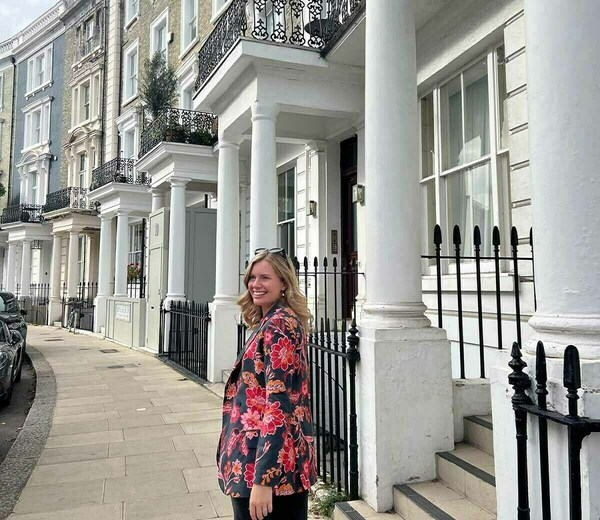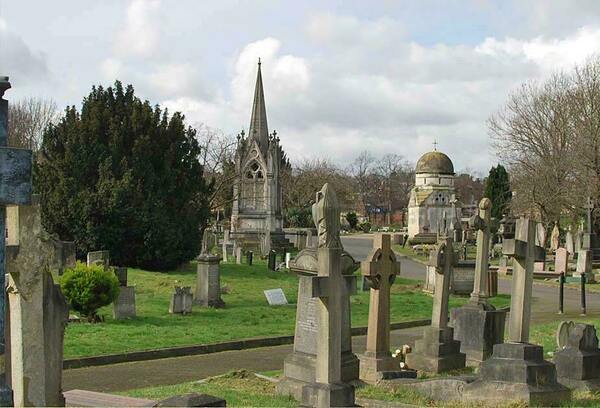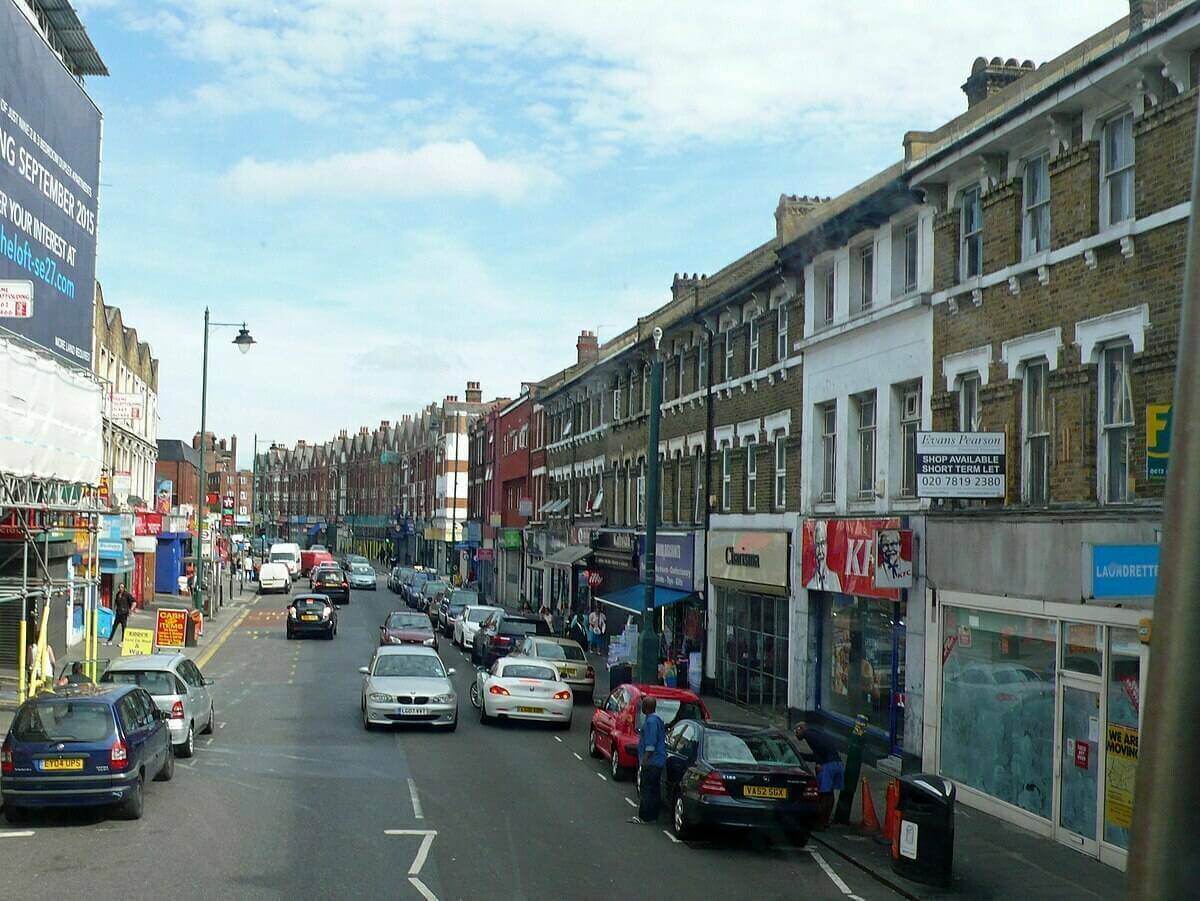
Grace Clinton ’24 is a preprofessional studies (SC) and global affairs major with a concentration in international development studies. She is minoring in anthropology. During fall break of the 2023-24 academic year, she traveled to London to study the impact and community recognition of the local L’Arche community with support from a Nanovic Institute grant.
Engaging with L’Arche communities has been a formative and enduring part of my undergraduate studies at Notre Dame. During the summer of 2021, I spent my time living and working within the L’Arche community in Washington D.C., through the Center for Social Concerns. L’Arche is an international organization that creates homes for people with and without intellectual disabilities to live together. The L’Arche model is based on mutually transformative relationships, both for residents and the people who work with them. During my time there, I grew to love my job as a primary caregiver for our residents. We would spend time watching movies, reading books, taking trips to museums, and preparing meals together. I also discovered how essential this community’s presence was in the greater Adam’s Morgan neighborhood. L’Arche residents were friendly neighbors, frequent coffee shop patrons, and employees at a local art studio, demonstrating that the impact of L’Arche extended beyond its residents and those who worked in the home.
During my time studying abroad in London in the fall of 2022, I continued my engagement with L’Arche communities by volunteering at L’Arche in London. I loved joining the community in neighborhood walks and fun art projects. After returning to Notre Dame, I still felt a strong connection to the L’Arche community.

One of the Nanovic Institute’s research priorities is looking at the voices and experiences of those on the peripheries. More often than not, people with intellectual disabilities have been physically put at the edges of society.
Historical usage of asylums or inadequate group living removed these people from everyday society. The introduction of new models like L’Arche is starting to reshape these ideas.
My experiences sparked an interest in how community living environments help reduce stigma towards people with intellectual disabilities.
I wondered if there are benefits to the greater neighborhood. Understanding these impacts could encourage legislators to fund similar houses, convince city councils to approve care permits, and begin measuring community engagement.
Encouragingly, over 50% of respondents indicated they are interested in becoming engaged with L’Arche in the future through community dinners, gatherings, or home visits.
In 2023, I received a Nanovic undergraduate fall research grant to research the impact of the L’Arche community on the West Norwood neighborhood in London. I spent most of my days in West Norwood collecting surveys to gauge people’s knowledge and opinions on L’Arche. I would go door to door, stand on busy intersections, or engage with local storefronts to gain research participants.
In the end, I collected almost 50 valid surveys to analyze L’Arche’s impact. The survey questions were written in collaboration with its members so that the results would best serve them; one such question asked what types of future engagement people would like to have with L’Arche.

My preliminary findings show that while people were aware of L’Arche, few had engaged with the community. People recognized them as neighbors and as an establishment in the community but their opinions about those with intellectual disabilities did not change much with the presence of L’Arche. Encouragingly, over 50% of respondents indicated they are interested in becoming engaged with L’Arche in the future through community dinners, gatherings, or home visits.
These surveys cannot holistically grasp the entire neighborhood’s opinions or the full impact of L’Arche. Still, they indicate that L’Arche is an important figure within the neighborhood where it is located, and people are willing to be engaged.
Whenever I get to engage with L’Arche I learn something new. The integration of people with intellectual disabilities into mainstream society is not only needed but is also beneficial to everyone. I would like to thank L’Arche London for their warm hospitality and the role they played in this research.